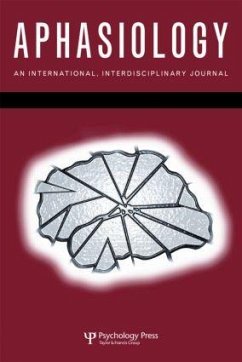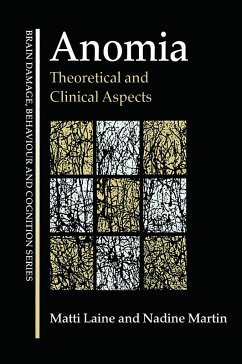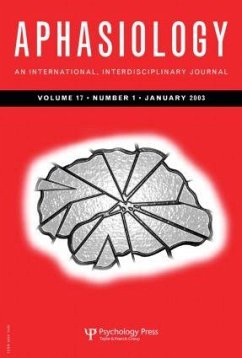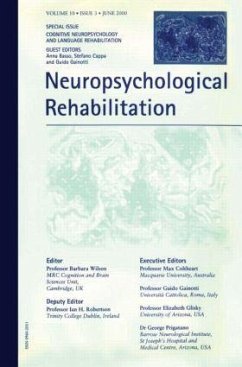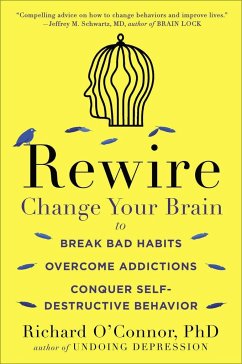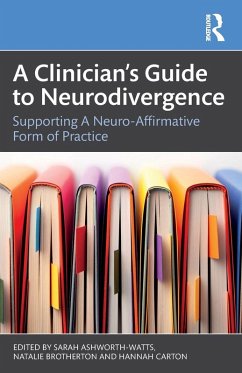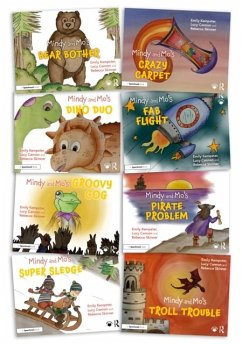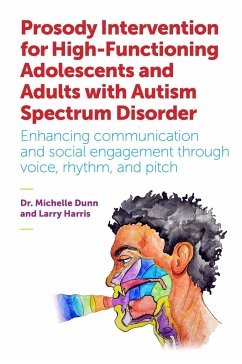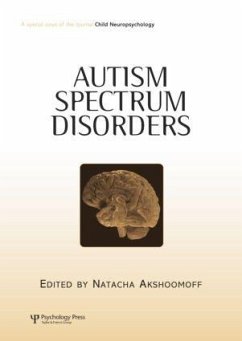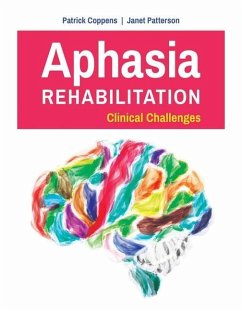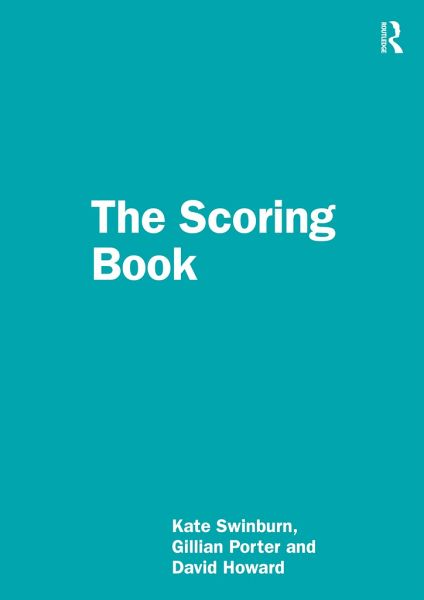
Comprehensive Aphasia Test
Scoring Book (Pack of 10)
Versandkostenfrei!
Versandfertig in 2-4 Wochen
61,99 €
inkl. MwSt.

PAYBACK Punkte
31 °P sammeln!
Each Scoring Book is a complete set of score sheets for the Comprehensive Aphasia Test bound together in a convenient booklet with intuitive layout for scoring of each sub-test. Front page features a client information sheet for easy filing, whilst a master page allows for recording re-test scores in the same place for easy comparison. Scoring Books are supplied in packs of ten. The Comprehensive Aphasia Test (CAT) is a test for people who have acquired aphasia and can be completed over one or two assessment sessions. The test includes a user manual, a ring-bound cognitive screen and language ...
Each Scoring Book is a complete set of score sheets for the Comprehensive Aphasia Test bound together in a convenient booklet with intuitive layout for scoring of each sub-test. Front page features a client information sheet for easy filing, whilst a master page allows for recording re-test scores in the same place for easy comparison. Scoring Books are supplied in packs of ten. The Comprehensive Aphasia Test (CAT) is a test for people who have acquired aphasia and can be completed over one or two assessment sessions. The test includes a user manual, a ring-bound cognitive screen and language battery a scoring booklet, and - new to this release - a concise Aphasia Impact Questionnaire which replaces the former Disability Questionnaire. The cognitive section assesses people's abilities across a range of task that can affect rehabilitation. Forming the main body of the test, the language battery provides a profile of performance across all modalities of language production and comprehension. The Aphasia Impact Questionnaire was co-produced with people with aphasia. It is a pictorial Patient Reported Outcome Measure, which produces both qualitative and quantitative information. It supports the person with aphasia to give a subjective rating of how language difficulties identified in the Language Battery affect their daily life, enabling first steps towards goal setting. In addition, the CAT helps the therapist to track changes over the course of recovery and provides a guide to likely outcomes on the basis of an early assessment. It is supported by normative data on people both with and without aphasia, and extensive data on reliability and clinical validity. The CAT allows users to: ¿ Identify underlying impairments ¿ Find where to focus assessments using PALPA and other batteries ¿ Ascertain the practical, psychological, and social impact of aphasia, from the perceptive of the person with aphasia ¿ Create a profile of strengths and weaknesses to guide therapy. Structured around fully up-to-date models of language processing from cognitive neuropsychology this test is an indispensable resource for speech and language therapists and researchers. It provides as much information about people's language ability as possible in a relatively brief test designed to be completed in 90-120 minutes.



